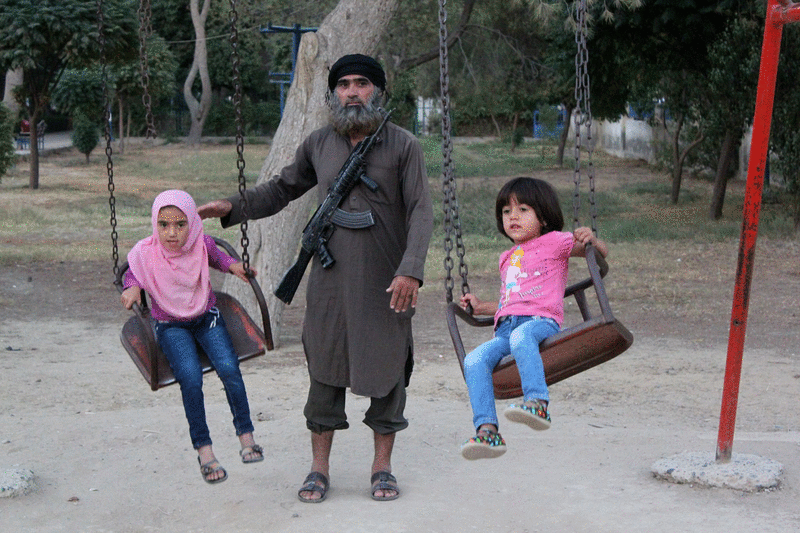In just a year, the self-proclaimed Islamic State (IS) has set up an efficient government in eastern Syria. Since then, many stories have surfaced of the brutality of this jihadist group and its crimes, yet other reports have shown a different point of view.
Ahmad, from a village in Deir-ez-Zor, expressed admiration for what the "state" has done in the areas under its control, including forming legal bodies, committees and directorates in various fields.
According to Ahmad, the organization has formed the system of 'Assas' or 'night watchmen' to monitor and protect individuals in public places and markets, in addition to building police stations to solve disputes among civilians using legal documents which later are referred to courts.
A media activist from Deir-ez-Zor commented on IS practices, saying: "It is interesting how the crimes of robbery and murder are now non-existent anymore, and inter-clan conflicts have almost disappeared."
"All of that is the result of using assas and IS agents who are deployed among people in large numbers," he said.
The activist also pointed out that the state has organized patrols or 'Hisbah' to monitor markets and prices and forbid people from banned acts like wearing jeans, imposing a strict dress code on women that forbids them from showing any part of their bodies except their eyes. "These Sharia rules are imposed on everyone to comply by, without exception," the activist said.
"I was not used to wearing baggy abaya, but when I reached my city in east of Aleppo, one of the Hisbah members stopped me and asked me to go to the Grand mosque in the city to get the Islamic dress, which I got for 3,000 Syrian Pounds," Mervat, from the city of Al-Bab said.
She also pointed out that when the jihadist militants find a man with his wife, and her dress is showing anything of her body, they ask the man to dress his wife in the “legitimate dress”, and consider the first time as a warning. If the incident is repeated, he will be put in prison or ordered to memorize verses from the Quran.
According to a source close to the organization in Deir-ez-Zor, villages under IS control are self-managed by its people who pledged allegiance to the Islamic State, and therefore there are no police stations, or Hisbah religious police to monitor people, probably because of lack of manpower.
In Minbij east of Aleppo, a young man described how the organization has given patients who have cancer or communicable diseases funds to purchase medicine, and also sent a number of them to the Mosul hospital, which is one of the most important hospitals in the Middle East for cancer treatment.
The state has administratively and functionally organized hospitals there, bringing doctors from various countries to treat their patients and is especially keen on cleanliness and sterilization of medical equipment, according to a local source in Raqqa.
One witness said that when wounded he was treated by an American doctor, and to his surprise most of the doctors there were foreigners, including British and Pakistani. He said the organization has encouraged doctors to come to these areas by luring them with large salaries exceeding $2,000 and encouraging the immigrants by giving them houses to stay in Raqqa.
An activist in the city of Deir-ez-Zor also described how electricity improved in the city. Families who had no access to power and were living in total darkness now have 10 hours a day after the Islamic State seized the area.
Translated and edited by The Syrian Observer
......


